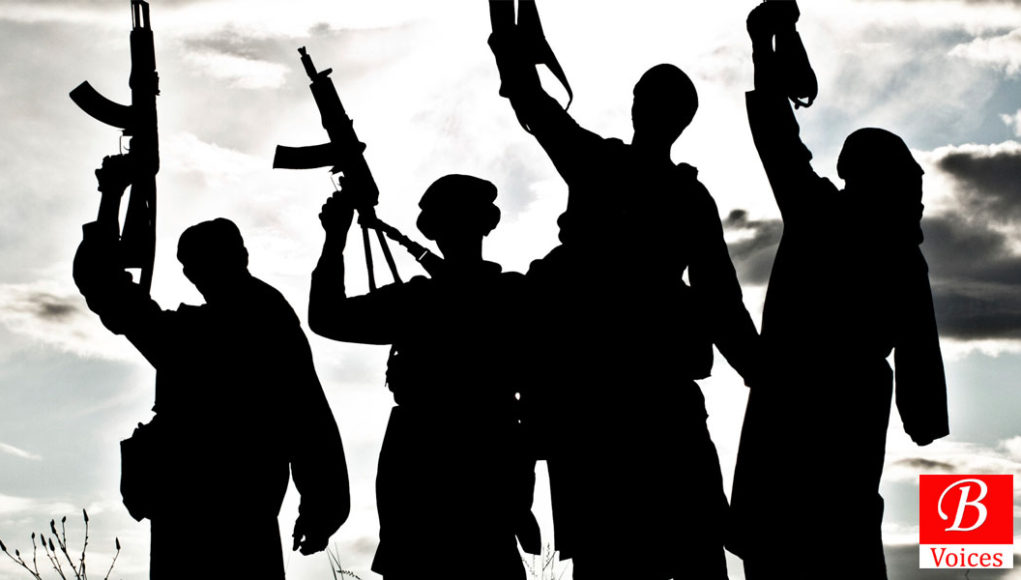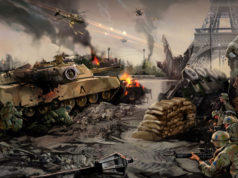Tahira Khan
The recent wave of militancy and border clashes have underscored many other crises within the country. It has spread fear in society, especially the peripheries, where concerned authorities have taken hold of the public narrative of either appeasing or confronting the militants on both sides of the border. Meanwhile, the need is also felt to handle the circulation of fake news which creates panic in society. Besides, why the role of debate, logic, and reasoning vanishes when the bullet claims superiority? Why do authorities and scholars ignore the element of fear within society induced due to the rising militancy?
At a fundamental level, the rise of militancy has raised fear in society. It has also highlighted when to take risks and when to avoid them. For instance, many policymakers argue that between confrontation and appeasement, there is space for strategy to deal with the situation. However, many other scholars argue there is a need to revive the Afghan Policy altogether. For them, appeasing and direct table talk with the Afghan Taliban will not help the situation, and government should take risks.
As far as society is concerned, it is struck with fear and uncertainty. The current surge of the Af-Pak Taliban has emboldened perceptions of danger and associated future uncertainties. What is fear after all? It is a manipulative picture of danger and it is another debate about whether danger exists or not. Let’s start with the perception of danger and its consequences. Fear is created if and only if we perceive fear within our environment. When fear strikes, it creates an imaginative situation putting us in scary circumstances. Media and news reports further embolden this perception. These scary situations become real for people and make them helpless. Ultimately, it leads to a depressed society where a sense of deprivation can be easily gauged.
It is pertinent to note that fear is deeply associated with emerging trends, practices, and processes. With time, fear becomes a belief where it is linked with governmental actions, policies, risky futures, crimes, etc. This is the reason many scholars argue that government must take a tough stand against militants operating on Afghan soil. Without governmental action, trends and processes can be changed altogether. Furthermore, fear is a phenomenon that links political processes and emotional tendencies. Therefore, societies struck with fear consider security and safety as the utmost priority. That’s why society, institutions, and states spend money, efforts, and knowledge on security prospects only. In such a society, the sole aim of a citizen is to feel safe and nothing else.
In particular, with the surge of current militant attacks, our society has become a cage of fear where citizens are tortured regularly. Does a citizen influence their life meaningfully in such conditions? I guess, not. In an uncertain society like ours, there is little space for a citizen to take decisions according to his/her will. That’s how the culture of fear becomes a permanent part of the society where a citizen becomes powerless and fear dominates every aspect of life. Does this cage of fear impact citizen loyalty towards the state? Definitely yes. Will this notion of fear impact Pak-Afghan bilateral relations? Again, yes.
As a result, one can easily suggest that we belong to the age of fear where militancy has played a great deal to make a fear permanent part of our lives. This age may also encompass resentment, anger, recession, economic default, and many other unstable foundations which threaten both state and society. But, militancy is the foremost threat that has shacked the very foundations of our society. Consequently, both the prospects and social status of society are in jeopardy. And, citizens, particularly youth, think they don’t belong to this society or country or should have been born somewhere else.
The writer holds an M.Phil Degree in South Asian Studies from the University of Punjab. She can be reached on Twitter @TahiraGhilzai.
Click here to read previous articles of the writer.
Disclaimer: Views expressed in this article are those of the writer and Balochistan Voices does not necessarily agree with them.
Share your comments!








